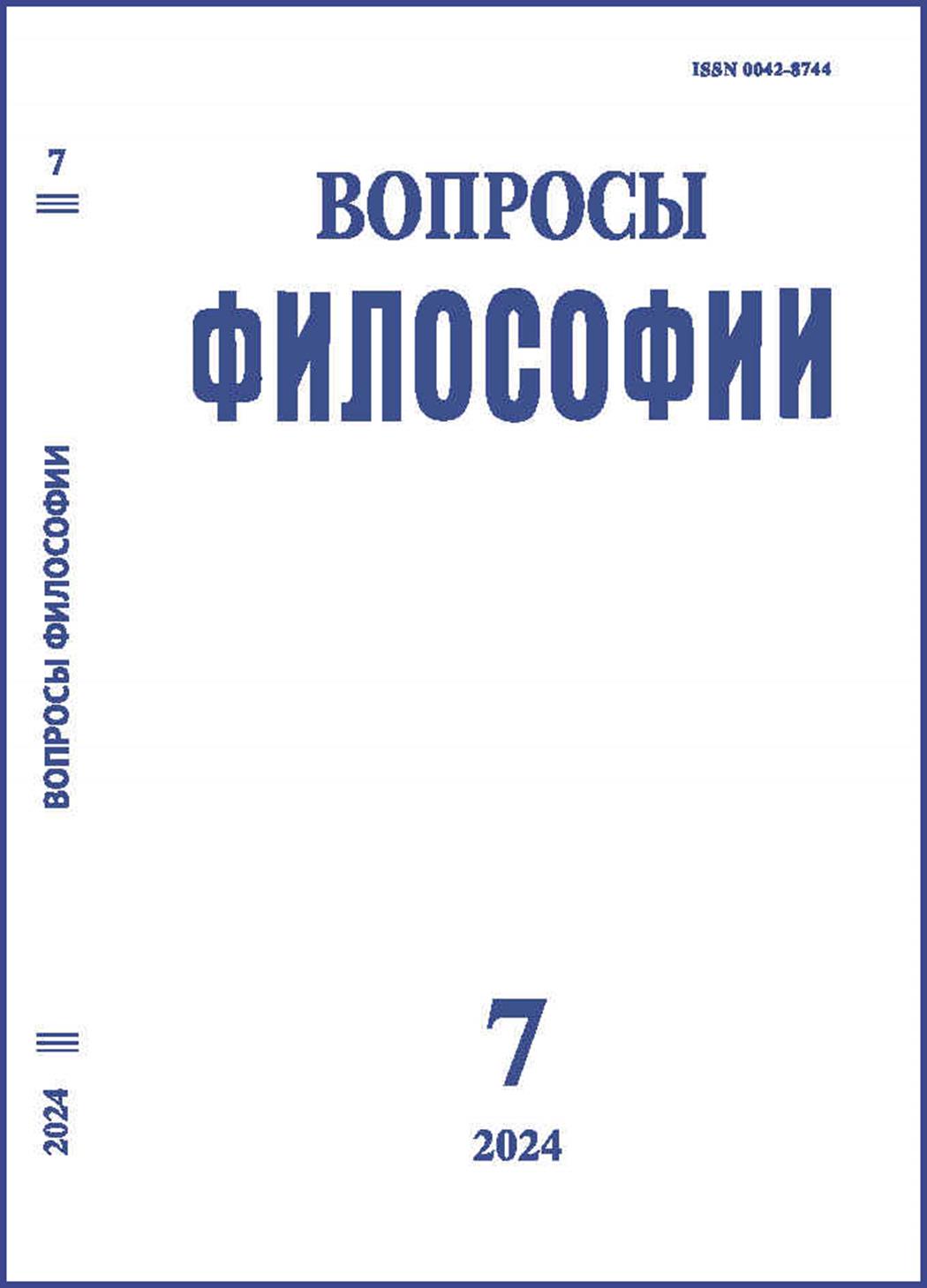Reason, Language, and Culture: Reading Al-Jābirī’s “Arab Reason” Concept Today
DOI:
https://doi.org/10.21146/0042-8744-2024-7-51-58Keywords:
Arab reason, al-Jabiri, Arabic linguistic tradition, asl-furu‘, Islamic law, fiqh, Islamic ethicAbstract
In his four-volume Critique of Arab Reason the late Moroccan philosopher
Muḥammad ‘Ābid al-Jābirī (1935–2010) argues that human history witnessed
“Greco-European” and “Arab” variants of reason, and not the single one. He challenges the confidence of philosophers in the universality of reason which disclosed
itself in the course of European history. Reading al-Jābirī’s theory in Kantian optics will prove fruitful in view of significant number of observations accumulated
in Arabic philosophical studies and directly related to the question of the type
of rationality that grounds Arab-Muslim culture. The Arabic linguistic tradition
bases itself not on the being of substance but on the flux of action. The indivisible
segment of the Arabic speech is the flow of sound between the two “sides” (ḥ arf,
pl. ḥ urūf). The copulative function ensures the gluing of the subject and predicate
into a single statement due to the action of “leaning” (isnād) between them, which
excludes the use of the “to be”-like copula and removes “being” from the list
of the fundamental metaphysical categories. All Arabic words, with few exceptions,
are “branches” growing from “roots” represented by names of actions. The “root –
branches” (’aṣl – furū‘) model, developed by the representatives of the Arabic linguistic tradition and Islamic jurists, explains the diversity of Islamic culture which
allows for direct contradictions, legitimizing them by tracing down to a single
“root”, which contrasts with the law of contradiction fundamental to European rationality. Islamic ethics is concerned not with the moral perfection of a single substantial individual, but with maintaining a network of interactions between human
being and God and between members of society, constituting society not as a hierarchy of strata and classes, but as multiple networks of interactions. The concept
of the “Arab reason” by al-Jābirī, read in Kantian optics on the basis of the achievements of philosophical Arabic studies, allows to substantiate the hypothesis
of the plurality of types of rationality developed through the history of humankind.

